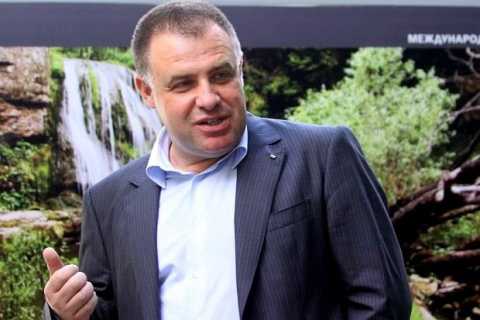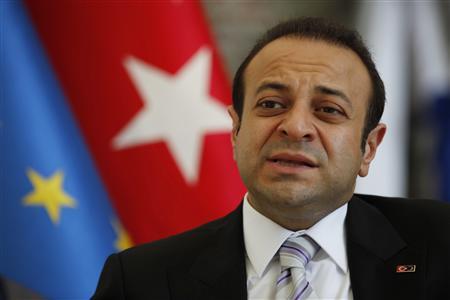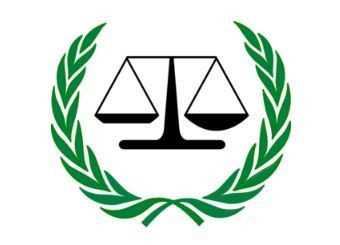 In the last few months of his life, Craig Monk attempted several overdoses and was described as ‘vulnerable’ by his family.
In the last few months of his life, Craig Monk attempted several overdoses and was described as ‘vulnerable’ by his family.
An accident a few years before had resulted in the partial amputation of his leg and he had suffered unnecessary, and anxiety-inducing, obstructions in receiving state assistance – even though his disability was clear for all see.
Over time he slipped further into poverty, the ends could no longer meet.
Finally, the fear of there not being a light at the end of his personal tunnel overwhelmed him and Mr. Monk, a 43-year-old from Burnley, was found hanging in his home in October last year.
I would love to say this is an anomaly, a one-off. That here was someone who was psychologically unhinged and motivated by his own selfish considerations. I cannot. For there is far more to it than that.
As I write there have been almost 150 deaths related to sick and disabled citizens who fear being plunged further into poverty as our benefit system – designed to protect the vulnerable – increasingly cuts people adrift leaving them to fend for themselves.
For some people the solution is clear and irreversible – as it appeared to be for Mr. Monk.
And, for that matter, Helen and Mark Mullins.
The Mullins had physical and mental disabilities to contend with and had spent months fighting the notoriously complex disability process at the Department for Work and Pensions.
Starved, literally, of sufficient financial assistance, the couple’s weekly food intake was bolstered by the vegetables they received from a soup kitchen in Coventry, a 12-mile round trip that they made weekly on foot.
The Mullins couldn’t afford a fridge and so kept food in the garden shed. Eventually they could no longer stretch their non-existent budget to heating their home and they spent their remaining months living in one room.
Captured on camera by a roving reporter shortly before their death, Mr Mullins, criticised the system:
“They have no problems suspending benefits,” he said, “They just put a tick in a box and they alter your life.”
So it was that the Mullins’ life was altered irreparably and, dreading another cold and hungry winter, they were found side by side, in an apparent suicide pact in November 2011.
Just another statistic, really. Barely worthy of a footnote – or so it would appear.
Even the most conservative estimate claims that 24,000 people worldwide die from hunger each day. Of course you may say, as people do, that such a thing would never happen in the UK.
That, due to our ‘bloated’ benefits system – the one the red-top tabloids claim to know so much about but actually know less than could be reasonably written on a matchbox – no one in our land will have to die from cold or starvation.
I wonder if you can help me out here, then. What is the difference between people dying from starvation and people killing themselves before they have to face that certain misery?
Not that the people dying are only suicidal. Some have been pushed to the brink by the Coalition’s continued use of the much criticised ATOS system, designed to tell how ‘fit for work‘ someone is.
This French company and model – (any reason why we can’t design and run our own?) – is cushioned with a whopping 100 million tax-payer funded pounds per year to move claimants from benefits to work.
The company was heavily attacked in the Harrington Report because its medical reports frequently failed accurately to reflect the assessment process or the circumstances in which they were conducted.
ATOS nightmare stories are legendary. People have suffered all manner of attacks – from anxiety to heart – during the process and the testing has proven unreliable according to the latest figures from HM Courts and Tribunals service.
Following a Freedom of Information request, the mental health charity Mind have released appeal figures for the period April to October 2011. They make for alarming reading.
They reveal that over the six months, almost half of the people who appealed against their ruling won their cases. That’s 37,100 who had previously, quite wrongly, been found fit for work.
This success rate increased to 67 per cent when people were represented by, say, a lawyer or a benefits adviser.
Consider that. Sixty-seven per cent of assessments were found to be wrong. That’s a huge failure rate by anyone’s standards, and an expensive one too. Amounting, as it does, to some 50 million pounds to administer appeals each year.
And that’s only the financial cost. What about the human cost of it? Where already vulnerable people are systematically broken down. Some never to recover.
Stephen Hill, 53, needed heart bypass surgery but was told he was fit to work and would be withdrawn from Incapacity Benefit in November 2011. This despite him winning a previous appeal against an assessment.
One month later, Boxing Day to be precise, and Stephen was dead from a heart attack.
His brother Anthony said: “The worry put so much pressure on him.”
It is certain to get worse, for despite the ATOS assessments being repeatedly proven to be wrong, ministers are preparing to restrict legal aid for those seeking to overturn unjust decisions.
So what we have is a system that is recognised as faulty, and we intend to remove the legal means by which to challenge its numerous errors. This comes in addition to the intended removal of benefits during the period of the appeal.
The message from Cameron and Clegg’s Coalition to disabled and sick people is clear. Accept what we say, or we will make life a (barely) living hell. And for some people that has proven too dire a prospect to contemplate.
Only a few weeks ago, during the voting of the Welfare Reform Bill, media commentators accused disability campaigners of ‘being paranoid’ and of ‘making a song and dance about nothing’.
They said that this Coalition, despite appearances to the contrary, would protect our sick and disabled. Oh yes, really?
Just one week after the morally-bankrupt Welfare Reform Bill was granted royal assent, the Coalition announced widespread closure of Remploy, nationwide factories that employ disabled people.
Thirty-six of its 54 factories were picked for the chop with potential compulsory redundancies of more than 1,700 disabled workers.
“So much for helping disabled people back into work,” said Steven Preece from the pressure group Social Welfare Advocacy.
The result is an untenable situation for disabled people. The possibility for earning a living has been seriously reduced – and this trend will continue as Disability Living Allowance is cut and will no longer enable some disabled people to work.
At the same time, the State will reduce the hard cash available to the claimant and will also pile on pressure to be assessed for millions of invisible jobs in a market place with almost three million unemployed.
The current ‘new thing’ for our disabled and sick to endure is the anxious wait for ‘the brown envelope’ from the DWP. So far a thousand or so disabled people have received instructions about getting back into work even though some have been given fewer than six months to live.
Extremely sick – some terminally so – and disabled people will be poked and prodded by physical assessors and blocked and humiliated by the clerical ones. Turn this way, turn that way. Walk, but not too fast. That may classify you as ‘not disabled enough’ or ‘too disabled’ – both state of affairs come with sanctions. Cattle truck, anyone?
It has to stop. Now. Our Coalition have pushed disabled people further into a type of poverty that we assume only exists in dictator-led countries. And we’re not one of those, are we?
How can Iain Duncan Smith have the temerity, the sheer barefaced cheek, to say that ‘no one will lose out’ in these reforms?
Why doesn’t he ask the mother whose Down’s syndrome child will likely end up almost £700 a year worse off, as a result of changes to their Tax Credits. Or the 50-something man recovering from a stroke who will lose hundreds from his yearly allowance? Well that’s the heating off for next winter, then.
The people our Government has lashed out at do not have gold-plated pensions from any number of companies that they may sit on the board of – as many Lords and MP’s do – and they live a hand-to-mouth existence.
What a world of mixed-up values and reprehensible morals. Where our Members of Parliament kick 12 bells out of vulnerable people but allow the extraordinarily wealthy to leap through tax loopholes designed to protect their already huge stash.
I have no objection to people acquiring material wealth through hard work – good for them I say. I do, though, draw the line at one rule for the rich and one for the poor.
According to the Land Registry, the UK is currently losing more than £1bn in tax as the rich and famous register some 94,760 properties – from townhouses and castles to country estates – into offshore companies.
Such tax dodgers include, among numerous others, Sirs Bob Geldof and Mick Jagger.
The problem for the Con-Dems is their protection of the rich over the naked dismissal of the poor, is increasingly transparent.
Due, in no small part, to this newpaper’s continued exposure of inequities such as ‘Sweetheart Deals’ where companies including Goldman Sachs and Vodaphone are routinely allowed to skip away with a tax bill substanially lighter – to the tune of billions – than it should be. Hey! billion pound deficit, we know how to fill you.
Cameron and Co’s actions are not only unjust but politically suicidal. The electorate, being essentially fair, will reject this Coalition at the election. They will be hoist by their own petard.
MP’s could do much worse than to look at the court of public opinion when it comes to their handling of the disability crisis. According to charity Papworth Trust, almost nine out of 10 respondents felt that disabled people are treated badly. Unfortunately too, for MP’s, a whopping 82 per cent said that politicians were unfair with disabled people.
The Coalition do not want to continue ignoring polls. Take, for example, a specially commissioned YouGov survey, designed to test the national pulse towards benefits.
The message that came back was clear and unequivocal. People hold great suspicion and dislike for the current benefit system but did not support the cuts aimed at disabled people. A miniscule 11 per cent, only, supported cuts to disability.
Of course that hasn’t stopped the Government from continuing to try and whip the country into a benefit hysteria. Take, for example, the DWP’s own figures last week which were widely circulated in the media and stated that some 37 per cent of people claiming disability were actually fit for work.
This amount, it should be pointed out, clashed with the reality of the situation – which found that the figures in the pilot schemes were only 22 per cent and the result of the appeals had yet to come in.
A DWP press officer was thus forced to admit that yes, this would result in a significant drop in numbers from that released to the press. See how rumours get started?
“It also doesn’t acknowledge the fact that the assessments are so inaccurate and many will not have the strength to appeal despite being wrongly classified as “Fit for Work”.” Says Sue Marsh, co-author of ‘Reponsible Reform – The Spartacus Report’.
“They will then have only Job Seekers Allowance to rely on and face exactly the sanctions a non-disabled person would. On less money than before.”
How have we allowed such worldly extremes where some are wealthy beyond measure – and others are pushed to the outer edges of society and forced to live a type of twilight existence?
Where some are so materially rich that if they lived to be hundreds of years old – and never did another days work in their lives – it would not dent their coffers and others die for want of a warm bed and a regular meal. Such disparities are obscene.
However there is hope for campaigners. It may be that much of the Welfare Reform Bill will prove to be illegal as it appears to clash with a number of human rights and could certainly face legal challenges.
This issue is not about so-called ‘scroungers’, who – aside from it being a vile, dehumanising term that should be beneath us – are few and far between. Let us not forget that the fraud disability rate is less than one per cent. No, the issue is the basic human needs that this Government is failing to take care of.
But hey, what’s the death of one or two, here and there? We have so much more to think about, right?
You know the things that preoccupy most of our time. Like, for example, the reality show judge trending on Twitter because a ‘sex tape’ purporting to feature her has been leaked onto the internet. Now that’s news. Apparently. She’s glamorous, you see, and wealthy too.
The same, sadly, cannot be said about those who consider themselves a burden to society and are too poor to carry on living.
The Daily Mail






